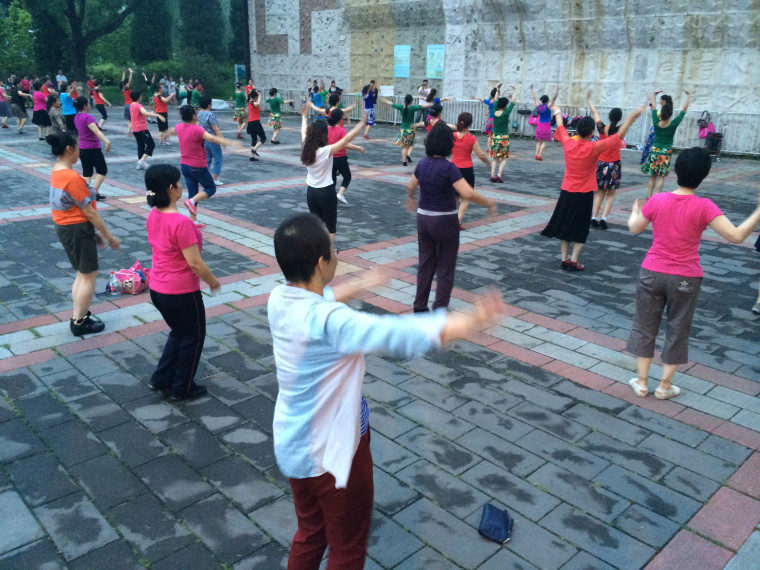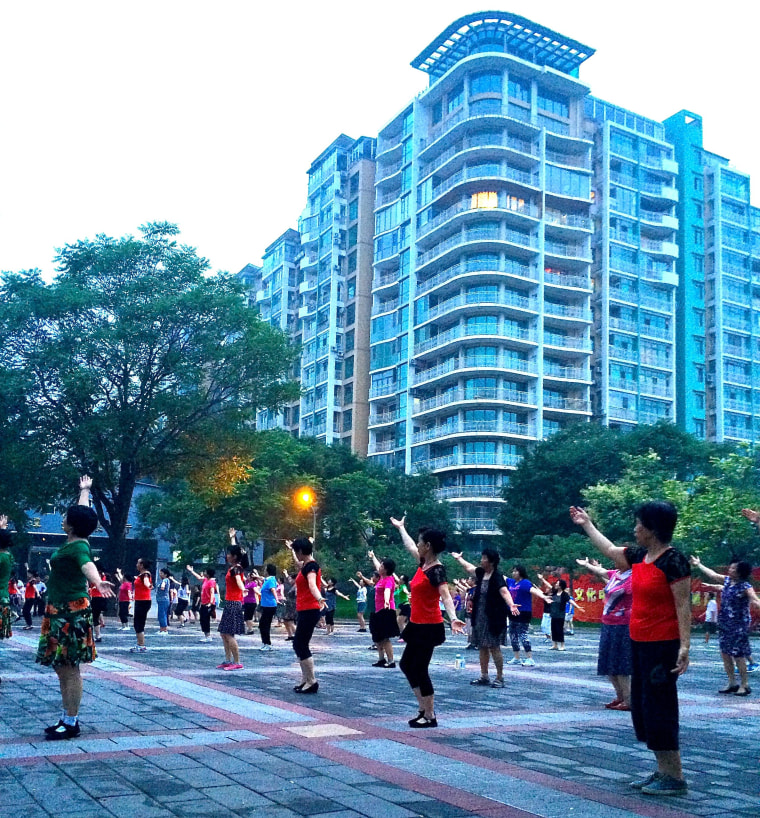BEIJING -- They gathered shortly before dusk in Beijing’s Dragon Pond Park, most of them older women, greeting each other warmly before lining up and raising their arms in preparation for their first dance.
On the face of it, you couldn’t imagine a less menacing sight.
Yet to their mostly younger critics these “dancing grannies” are a scourge on the city, a growing threat to peace and tranquility.
A suitcase-size speaker crackles to life, and the women – who soon number more than a hundred strong – start to move in unison.
As the light fades, they flap their arms and twirl to the beat of a Chinese pop song.
“If you are dancing you can keep fit. Look at me!” said Ying Fan, a trim 51-year-old teacher at a Beijing international school. “And it makes me happy,” she added.
A crowd gathers to watch, some tapping their feet, others with a look of silent reproach.
It’s a scene repeated at dusk and at dawn – the dancing hours - right across the capital, in parks, squares, even below underpasses. In fact, just about anywhere they can find the space to dance.
And not just Beijing. By one estimate there are now one hundred million public dancers in China, and the number is growing rapidly as the country ages.
"I do advise them to keep the volume down. We stopped dancing for three days during school exams.”
They see “Guangchang Wu”, or square dancing, as good for health and good for companionship – but in China’s crowded cities, its not always good for the neighbors.
The “dancing grannies”, as they’ve been dubbed by the Chinese media, are facing an urban backlash. Younger city-dwellers see them as a nuisance, and are demanding they turn down the volume.
“Here is okay. It’s a park, not an (apartment) complex,” said Fan defensively, “But I do advise them to keep the volume down. We stopped dancing for three days during school exams.”
Though they are in the park, a series of apartment blocks loom through the smoggy half-light close-by, and Fan and her fellow-dancers have every reason for keeping a wary eye overhead.
Other dancers have been bombarded with water-bombs – and worse. China Central Television reported on what it called a “a large amount of poop”, hurled out of one window and onto the heads of dancers in the city of Wuhan.
While the China Youth Daily described how one exasperated Beijing man it identified simply as Shi fired a shotgun into the air and unleashed three large dogs on a group of women dancing in a square below his apartment.
“We’ll keep the noise down, but people should be up and going to work by 8am...Why can’t young people just get up earlier?”
It has become one of the big stories of the summer for the Chinese media – a “national issue”, trumpeted the China Youth Daily. While one online news outlet, taking the side of the critics, declared: “old people haven’t gone bad, its bad people who have just gotten old.”
The City of Xi’an is proposing a new law to curb the dancers – banning them from performing between 10pm and 8am, as part of new city noise regulations.
But for the most part the authorities are wary of taking on the growing ranks of elderly dancers.
The police have shown uncharacteristic restraint, wary of upsetting the grannies, and pointing out that there is no law prohibiting people from dancing in public.

They have instead tried to mediate, and broker local deals over volume and hours.
While academics, weighing into the debate, blame bad urban planning for failing to set aside sufficient space for public activities.
The dancers, who are typically female and aged between 40 and 65, have vowed to carry on regardless, many dismissing their critics as lazy and selfish youngsters.
“We’ll keep the noise down, but people should be up and going to work by 8am,” one early-morning dancer told the China Youth Daily. “Why can’t young people just get up earlier?”
For Ying Fan its hard to contemplate life without dance, which she does every evening now the school term has ended. Her group winds down shortly after 9.30pm. With a crackle and screech, the speaker is disconnected. They pose for some group photographs before going their separate ways. They are all smiles, which ultimately is what its all about. And they find it hard to see how anybody could possibly take offence.
